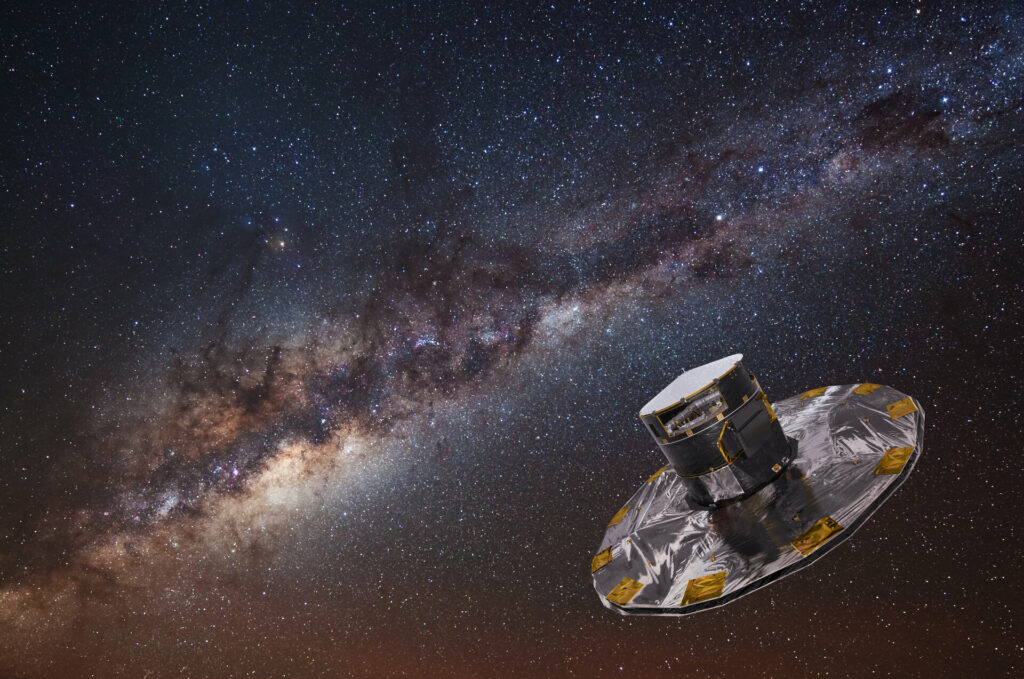
The collaboration leading the European Space Agency’s (ESA) Gaia satellite project has received the 2023 Lancelot M. Berkeley Prize. The prize is bestowed annually by the American Astronomical Society (AAS) for meritorious research published within the preceding 12 months.
The Gaia team is being awarded, in particular, for an article published in the journal Astronomy & Astrophysics in May 2021 describing the early data contained in the Gaia mission’s most recent catalogue. In particular, the Gaia Data Processing and Analysis Consortium (DPAC) has revolutionized the way stellar and galactic astronomy is conducted. The mission’s three data releases thus far encompass the largest low-resolution spectroscopic and radial velocity surveys in history, providing detailed information on some 1.8 billion Milky Way stars, including 10 million variable stars and 813,000 binary systems. As the prize statement reads, “Gaia’s three data releases will long be regarded as major events in the history of astronomy, triggering a global partnership to better understand the origin, structure and destiny of our home galaxy.”
Since its launch in 2013, the Gaia space telescope has recorded stellar positions, distances, colours and proper motions for nearly two billion stars in our galaxy. “Gaia is transforming our view not only of the Milky Way but also of stellar astrophysics. The mission is the result of a collaboration that has involved some 450 researchers across Europe for more than 20 years and that is supported by European Space Agency’s technical teams for satellite control,” explained Antonella Vallenari, one of the two European managers of the Gaia Data Processing and Analysis Consortium and an astronomer at the National Institute for Astrophysics (INAF) in Padua.
Italy makes a significant contribution to the mission. As Vallenari explained, “Italy, through the Italian Space Agency (ASI) and the National Institute for Astrophysics (INAF), makes one of the most significant contributions to the mission which involves seven observatories and two large data analysis and storage centres. We are thrilled that our hard teamwork has been honoured with such a prestigious prize. Working in the Gaia team is a great challenge due to the complexity of the project, but it has been the most exciting adventure of my scientific life.”

